Recently we wrote about the pervasive self-doubt that haunts most people who want to learn how to code. That’s why it’s impossible for you to gauge yourself and honestly tell if you’re smart enough, or talented enough to be a working programmer.
Then we showed you new research that explains which character traits successful programmers have in common (hint - it’s not a high IQ, or natural ability). We even shared an online test that measures how many of these traits you have going for you.
Today, we’ll dive into the most surprising lesson of all:
You can rewire your brain to think like a programmer
The best programmers can form mental models and consistently apply them to solve tough problems, using logic and code. This is not an intelligence skill. It’s a matter of focus and passion and patience; what psychologists have recently named “grit”.
Great programmers are gritty. But grit can be learned. And recent advances in neuroscience can show us how.
Jason Shen is a Product Manager at Etsy and an avid learner. He studied how your brain acquires new skills and wrote up an easy-to-understand overview of a few groundbreaking studies on the topic.
If you want to dive deep, read’s Shen’s post. But here’s the gist:
In the past we all thought talent, like playing basketball or even coding was due to innate skill. But now, through advanced brain scanning technology, scientists have learned that new skills can be nurtured. The white matter in your brain literally creates new and faster pathways whenever you practice a particular skill.
However, the practice has to be intense, deliberate, and performed over a stretch of time (PDF). This is the only method that forces the brain to ingrain the new skill into your white matter.
That’s why so many new programmers become frustrated and label themselves as not cut out for coding. They’ve been learning the wrong way!
You can’t watch a few YouTube videos at night and expect to become proficient at anything new. If the topic is complicated or novel you need time, effort, and focus to make it stick.
We now know the best way to train your brain and master a new skill is through immersive, hands-on learning.
That’s why the bootcamp model is so effective, whether you’re training for war, losing weight, or learning to code.
But there’s a problem.
Because a bootcamp is so intense you’ll need lots of passion and determination to make it through. Great bootcamps provide a support system, like coaching and mentors. That’s helpful, but you’ll still need an internal desire that only you can manufacture.
Carol Dweck is the world’s leading researcher in the field of motivation. She discovered that the most driven learners have a "growth mindset", while easily discouraged learners have a "fixed mindset."
A growth mindset embraces new ideas and tough challenges, with the understanding that you can stretch and change if you’re willing to do the work.
A fixed mindset harbors the false belief that you are stuck with the skills you have and nothing can be done about it.
Dweck summarizes the sad paradox of the fixed mindset:
“Students who hold a fixed view of their intelligence care so much about looking smart that they act dumb, for what could be dumber than giving up a chance to learn something that is essential for your own success?”
A growth mindset is a choice. But if you have fixed mindset, there is something small you can do to spark a shift.
A Tiny Bit of Progress Can Radically Change Your Mindset
When spelling bee contestants saw that intense practice increased their ability to recall words, they studied harder (PDF).
When students in a poor neighborhood in the South Bronx were praised for their effort, and taught to have a growth mindset (PDF) they scored the 4th highest math grades in New York State.
And when people are interested in Coder Foundry, but are concerned they'll never have what it takes to complete our program, we send them this interview with our graduate, Philip Weiser:
“It was kind of like being thrown into the deep end or like holding onto the bumper of an 18-wheeler. You’re focused on holding onto it the whole time and when it’s over, you look back and see how far you’ve gone.”
Philip has a growth mindset, nurtured by seeing his own progress at Coder Foundry. As he explains in the interview, "We would each run into our different problems, which is fine because problems are how we learn."
Coder Foundry taught Philip how to think like a programmer, not just write code. As you'll hear in the interview he says that the mental flexibility he acquired at Coder Foundry still helps him pick up new skills at his job all the time.
Just by having faith in your brain's ability to learn you Inspire a growth mindset Within yourself.
And that mindset nurtures a gritty character that embraces challenges and refuses to quit.
And that character ensures your success through a coding bootcamp and a programming career.
Here’s the trick. If you embrace the stories and studies cited in this blog post, and believe in your brain’s ability to stretch and acquire new skills, you are on your way to having a growth mindset and grit.
It also means you'd make a perfect candidate for Coder Foundry, no matter your level of programming experience. Talk to us about joining our upcoming class.
